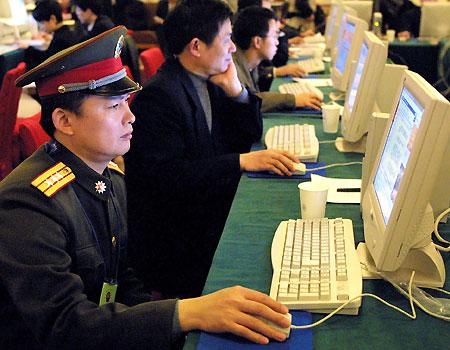Today, there are implied risks when it comes to using the internet. The safety guarantees of the physical world are not guaranteed in the cyber realm; navigating the information superhighway can be dangerous.
Almost no one is exempt from this uncertainty — just ask Google. In 2010 the internet giant announced that critical company information had been stolen.
The 2010 hacking of Google was part of an ongoing trend that has been dubbed “cyber-espionage,” which is now receiving attention largely because of the huge economic consequences.
“A report commissioned by the security firm McAfee surveyed more than 1,000 large corporations internationally and found that in 2008, the responding firms lost an average of $4.6 million due to cybersecurity breaches that resulted in lost or stolen intellectual property,”
Gerald O’Hara reported in the CommLaw Conspectus journal of communications law and policy.
Cyber-espionage of this nature was the subject of a recent investigation by The Office of the National Counterintelligence Executive. According to the report:
“The computer networks of a broad array of U.S. government agencies, private companies, universities and other institutions — all holding large volumes of sensitive economic information — were targeted by cyber espionage.”
The report also suggested the most threatening suspect: China.
According to the New York Times, Chinese government claims not to condone the unlawful procurement of information online and most espionage cases have been traced to private groups or individuals in China.
Despite its denial, however, China is still suspect. According to Arstechnica.com, most Chinese companies are partially owned by the government, giving the state influence in decision making and stake in the companies’ success.
According to the New York Times, the report suspects that these private hackers are actually funded by the government.
As China aspires to grow economically, the U.S. has become focused on maintaining the upper-hand.
“The U.S.’s policy for any big power is containment,” said Economics Professor George Guo.
For this reason, the U.S. has prohibited the exchange of certain information to China, leaving espionage the most effective (and possibly only) way to obtain U.S. trade secrets.
“Most computer-network espionage against American economic targets has focused on these areas, according to the study: information and communications technology; assessments of supplies of scarce natural resources; technologies for clean energy and health care systems or pharmaceuticals; and military data, especially maritime systems, and air and space technologies,” the New York Times reported.
Critics protest that the recent cyber-espionage investigation, disproportionately focuses on China. Other cases of hacking have been traced back to allies of the U.S. and even sources within the U.S. The U.S. has even been accused of participating in cyber-espionage, itself.
“I’m assuming all major powers are doing that,” said Economics Professor Bob Williams. “If we were going to go to war with a major country, part of it is going to be you not only attack their planes, and ships…but you attack their communications and the internet is now one of those.”
In the midst of this communication battle, the U.S. has implemented plans to investigate Chinese firms. According to Arstechnica.com, one technology firm, Huawei, was restricted earlier this year from trading with the U.S. as a result.

